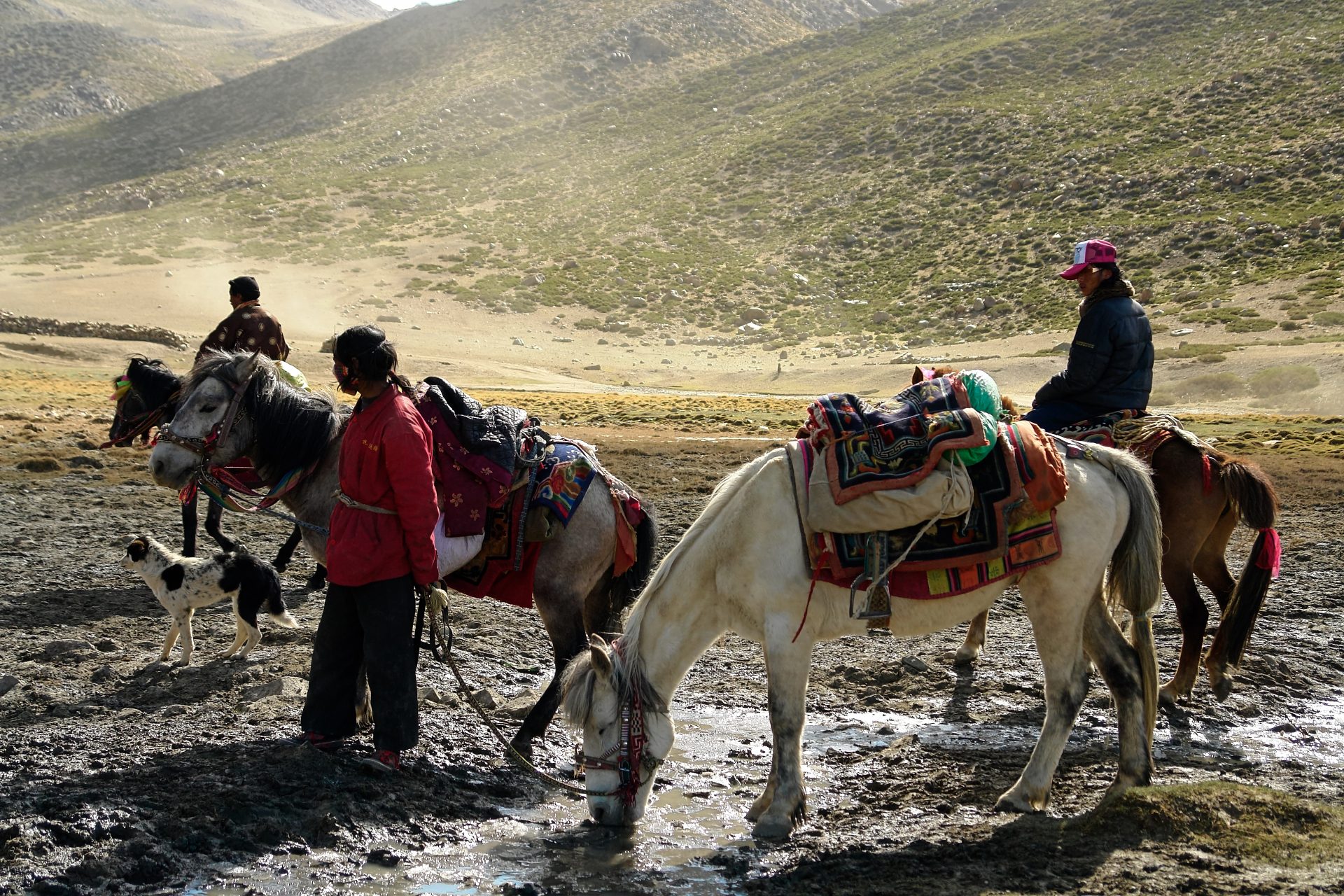Chinese authorities in Tibet have arrested 110 Tibetans on suspicion of sharing videos of preparations for a local horse racing festival they ordered canceled due to the coronavirus pandemic, sources in Tibet told RFA.
The Nagchu (Naqu, in Chinese) Horse Racing Festival has been described as the biggest annual event in the northern part of the Tibet Autonomous Region. Though the event had been scheduled to open Monday and run through August 20, authorities decided to cancel the event and all related festivities, tourist activities, and gatherings to stop the spread of the coronavirus.
The cancellation came with retroactive orders not to share publicly any photos or videos of the event’s preparations, and many Tibetans who had shared them were punished, sources said.
“We were summoned to a meeting on the morning of August 9, and that’s where all the cell phones were confiscated by the authorities for inspection,” a Tibetan resident told RFA’s Tibetan Service.
“Eleven police officers showed up that day and called out the names of 110 individuals who were then taken to the police station,” the resident said.
The 110 were accused of sharing pictures and videos of event preparations on social media, according to the resident.
“Some of them were fined 5,000 yuan [US$772] and were told they must report to the police station once a week,” the resident said.
Another Tibetan resident told RFA in a written message that authorities are unfairly applying pandemic restrictions to Tibetan cultural events.
“Tibetans were barred from celebrating the Shoton Festival in Lhasa and the Horse Racing Festival in Nagchu, but the Chinese government didn’t hesitate to celebrate the 70th anniversary of what they call the ‘liberation’ of Tibet, with the full festivities,” the second resident said.
The anniversary commemorated the May 23, 1951, signing of the 17-Point Agreement which established Chinese sovereignty over Tibet, which from that point onward ceased to be an independent state.
In Chinese, the 17-Point Agreement is known as the “Agreement of the Central People’s Government and the Local Government of Tibet on Measures for the Peaceful Liberation of Tibet.”
Sources told RFA that 30 of the 110 arrested Tibetans remain in detention, while 80 were released.
Copyright © 1998-2020, RFA. Used with the permission of Radio Free Asia, 2025 M St. NW, Suite 300, Washington DC 20036. For any commercial use of RFA content please send an email to: [email protected].







